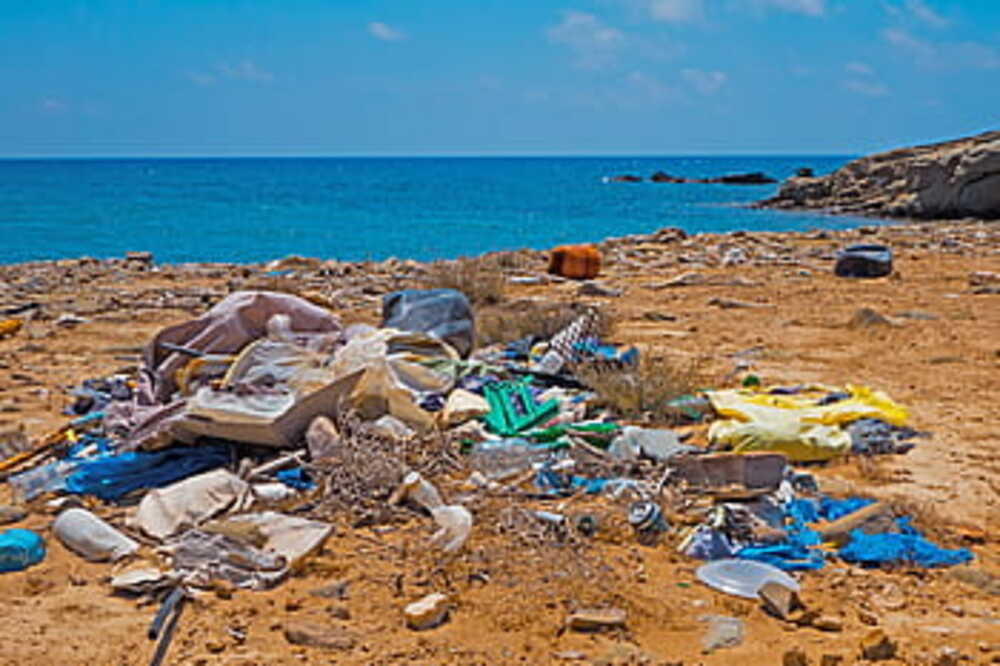Plastic waste is a major environmental problem, particularly in coastal regions where it often finds its way into the ocean. Egypt is one of the worst offenders in the Mediterranean, with 74,000 tonnes of plastic waste entering the sea each year.
In an effort to combat this issue, an Egyptian startup called TileGreen is turning plastic waste into durable paving tiles that can be used in outdoor spaces.
Recycling billions of plastic bags
TileGreen co-founder Khaled Raafat explained that the startup has already recycled over 5 million plastic bags, but its goal is to recycle more than 5 billion bags by 2025. At their factory on the outskirts of Cairo, workers collect large barrels filled with mixed plastic waste. Then they melt it down and compress it to create the tiles.
These plastic tiles are significantly more durable than traditional cement tiles and are sold to real estate developers and contracting companies for use in outdoor paving. The tiles are weather-resistant and can withstand heavy foot traffic, making them an excellent choice for public spaces.
Since they are durable, plastic tiles reduce the need for frequent repairs and replacements. Finally, they have a lower carbon footprint than traditional paving, as the process of producing and transporting cement or concrete generates significant greenhouse gas emissions.
Reducing building sector emissions
TileGreen’s efforts not only address the problem of plastic dumps but also help to reduce emissions from the building sector.
Cement production is a significant contributor to greenhouse gas emissions, so using plastic tiles instead of cement ones can have a positive impact on the environment. By providing a sustainable alternative to traditional paving materials, TileGreen is helping to promote a circular economy and reduce waste.
The future of TileGreen and recycling plastic waste
TileGreen’s innovative solution to the plastic waste problem has the potential to revolutionize the construction industry. As the demand for sustainable building materials increases, the market for plastic paving tiles is likely to grow. TileGreen plans to expand its operations in the coming years to recycle even more plastic bags and produce more paving tiles.
TileGreen’s plastic paving tiles offer a creative and sustainable solution to Egypt’s plastic waste problem. By recycling millions of plastic bags into durable paving tiles, the company is reducing the amount of plastic waste in the environment and creating a new market for sustainable building materials. As Egypt continues to take action to address its plastic waste issue, TileGreen’s innovative solution has the potential to make a significant contribution to the country’s sustainability goals.
Egypt’s plastic waste problem
According to a 2020 report by the International Union for Conservation of Nature, Egypt is one of the worst polluters in the Mediterranean region, with approximately 74,000 tonnes of plastic waste entering the sea each year (IUCN).
People often discard this waste in the street or dispose it of in informal dumps. Also, they burned it which leads to high levels of pollution in the country.
But the government takes action to tackle the plastic waste issue. The country hosted the United Nations COP27 climate summit in November 2022 and has banned the use of single-use plastics in several provinces in recent years.
The Environment Minister, Yasmine Fouad, announced at COP27 that the government is working with supermarkets to ban single-use plastics by mid-2023 and aims to ban them nationwide by 2024.

